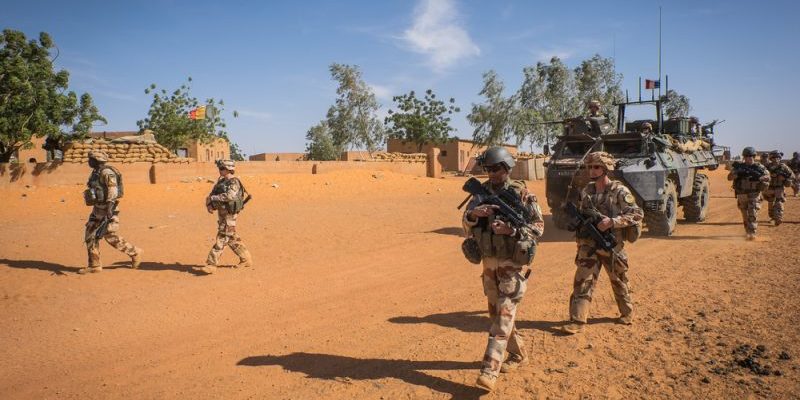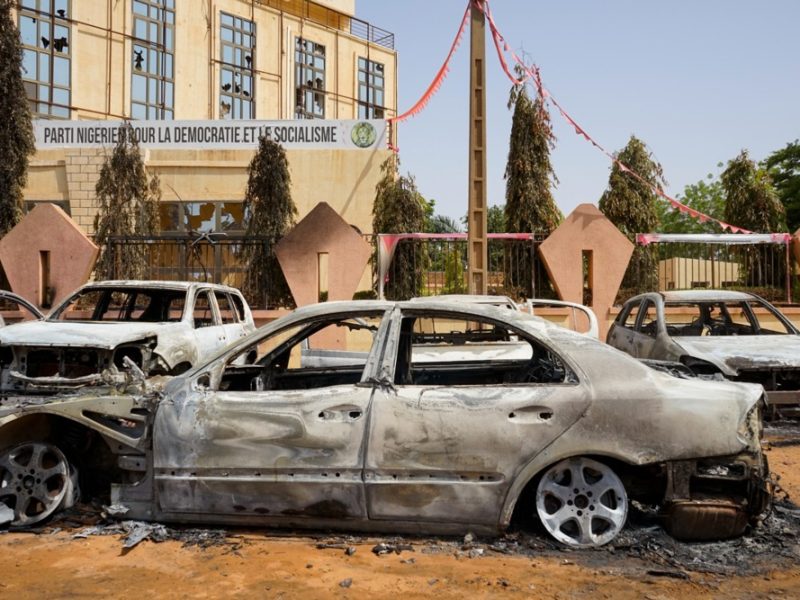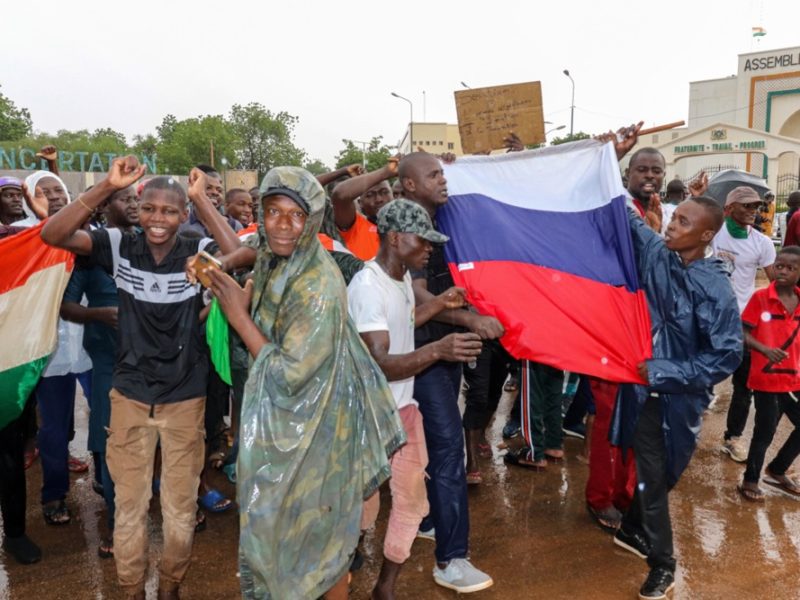The coup in Niger which has unfolded over the past few days marks the end of a largely-failed French military ‘Barkhane’ operation in the Sahel, broadly due to a lack of resources and underlying sense of neocolonialism, experts told EURACTIV.
The coup saw Niger army general Abdourahamane Tiani topple and hold captive the democratically-elected president Mohamed Bazoum on Wednesday (26 July).
The military take-over has been under heavy fire from the international community, which rejects Tiani’s legitimacy as self-declared leader.
The 15-nation Economic Community of West African States (ECOWAS) demanded Bazoum’s “immediate release and reinstatement” on Sunday, threatening to use force. France, whose Embassy was attacked by a pro-putsch mob on Sunday, also condemned the “unacceptable violence”.
On Saturday, France’s Foreign Affairs minister Catherine Colonna announced the country would freeze all development aid to Niger until Bazoum, and the “Nigerien constitutional order”, were reinstated. Germany followed suit on Monday.
Rising jihadism
Reasons behind the putsch are numerous – and must be understood within the prism of a general geopolitical instability in the Sahel region, especially with the rise of jihadism.
“Jihadists have been on a steady rise for the past four to five years in Niger,” Benjamin Petrini, Research Fellow at the International Institute for Strategic Studies (IISS), told EURACTIV. This has caused political instability and brought a country steeped in conflict on several fronts to its knees, he added.
Niger is one of the poorest countries in the world, with over 10 million people (41.8% of the population) living in extreme poverty in 2021, according to the United Nations. It is also experiencing one of the largest demographic booms across the globe, with a seven-children average per family unit.
Bazoum was democratically elected in 2020 in what is deemed one of the first peaceful transitions of Niger’s modern political history. However, François Gaulme, associate researcher at think-tank IFRI, told EURACTIV that Bazoum being of an ethnic Arab minority laid a difficult path.
“Bazoum lacked support from the majority Haoussa ethnic group […]. Tribalism is perceived as a thing from the past, but it’s in everyone’s heads out in Niger,” Gualme said.
10-year-long French presence
But there is more than just internal crises. France’s military presence in the Sahel through the now nine-year-long ‘Barkhane’ operation, initially intended to ensure political stability in the region, is seen as a major failure.
“France first intervened in Mali through the ‘Serval’ military operation [to push back jihad insurgents] in 2012-13. It had a limited mandate, and was deemed a very successful operation,” IISS’s Petrini said.
Yet Islamic extremism cannot be tackled just through one country – and a region-wide approach was required, the scholar added. “France deployed again [in 2014] with a much wider scope, a larger geographical area to cover and not enough resources,” he said. The deployment reached 5,100 troops at its peak in 2020, for a territory the size of Western Europe.
The Barkhane operation had some success in keeping jihadists at bay, Gaulme explained. But the 2020 Mali coup and the 2022 coup in Burkina Faso spoke to France’s general failure to meet its Barkhane objectives, slowly brewing discontent in local populations – with French President Emmanuel Macron ultimately announcing the military operation phase-out in November 2022.
The situation in Niger “marks the end of France’s Sahel military adventure” after facing a backlash in public opinion across the region, Thierry Vircoulon, also at IFRI, told French radio France inter on Monday.
National armies from the Sahel region were also in part following the orders of the French, which created a sense of power imbalance. “There was an unconscious neocolonial bias by the French,” treating African armies as mere subordinates, IFRI’s Gaulme said.
This narrative was further exacerbated by Russia’s active disinformation campaigns, which blamed the countries’ woes on France entirely.
“Wagner fighters are seen as mercenaries,” according to Gaulme, therefore being easier to broker deals with – rather than turn to full-fledged armies with presumed national interests at heart.
Where to from here?
Ultimately, France continuing to engage military in the Sahel the way it has is becoming increasingly unviable. “Macron had aired the idea of a strategic review of France’s Sahel involvement” a few years back, Petrini said, though the Mali and Burkina Faso coups resulted in the Western forces thinking “reactively, not proactively”.
What this future cooperation would look like is impossible to tell at this stage. Michel Goya, a former Navy colonel and miliary historian, claimed France should have left the Sahel altogether after the Serval operation, and intervene on an ad hoc, “fire-fighting” basis.
IISS’s Petrini is pessimistic: “We are in crisis-management mode” now, he said, adding that concerned Western powers have lesser political leverage than ever in the region. US State Secretary Anthony Blinken’s Niger visit in March, initially intended to bring some stability, did little to prevent the coup.
“The most detrimental thing that is happening to African nations today is the fierce competition between Western actors and Russia, recreating a sense of the Cold War’s proxy-war approach,” where two superpowers face off in seemingly-neutral territory, Petrini deplored.
So far – there is no end in sight.
[Edited by Nathalie Weatherald]




